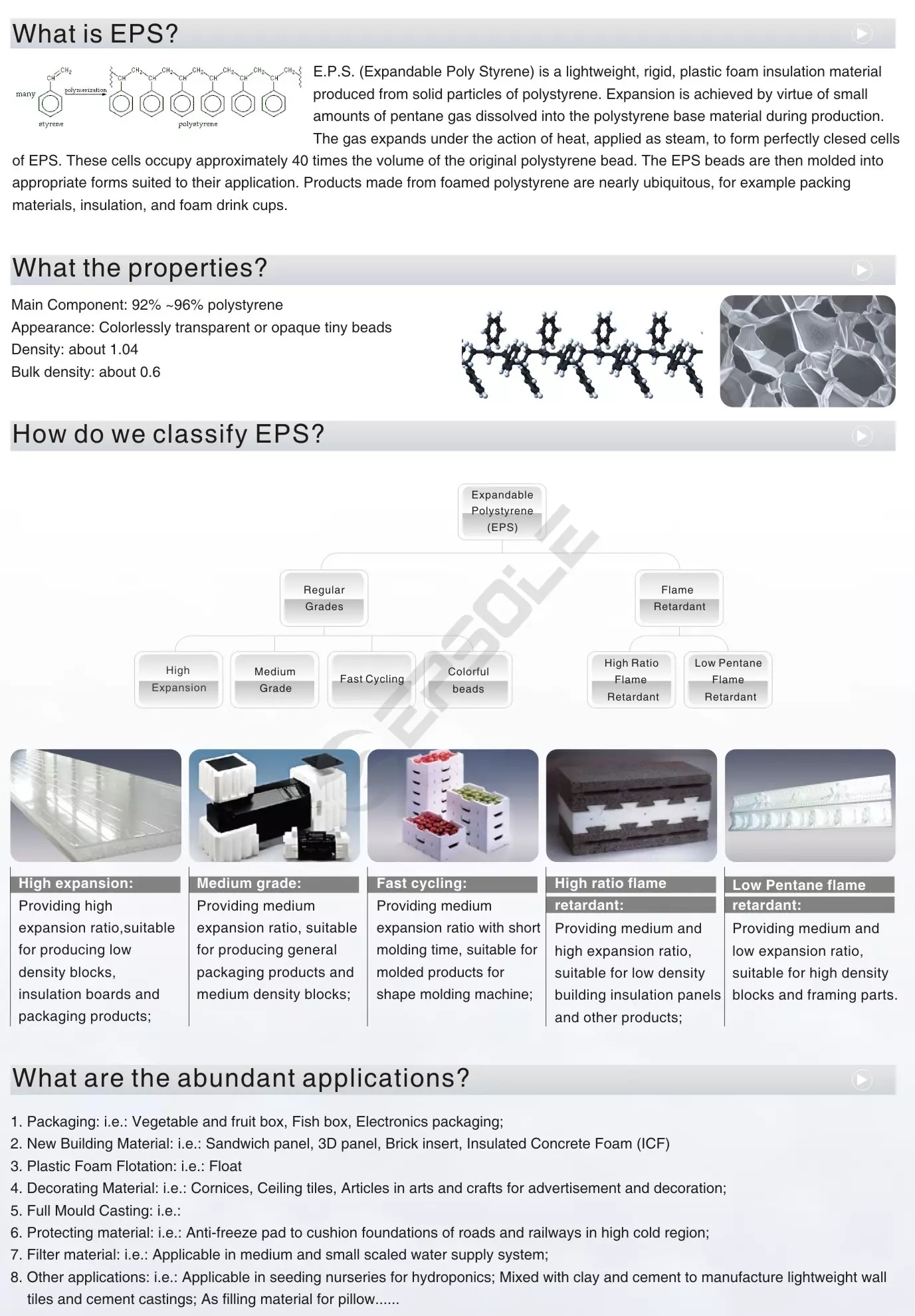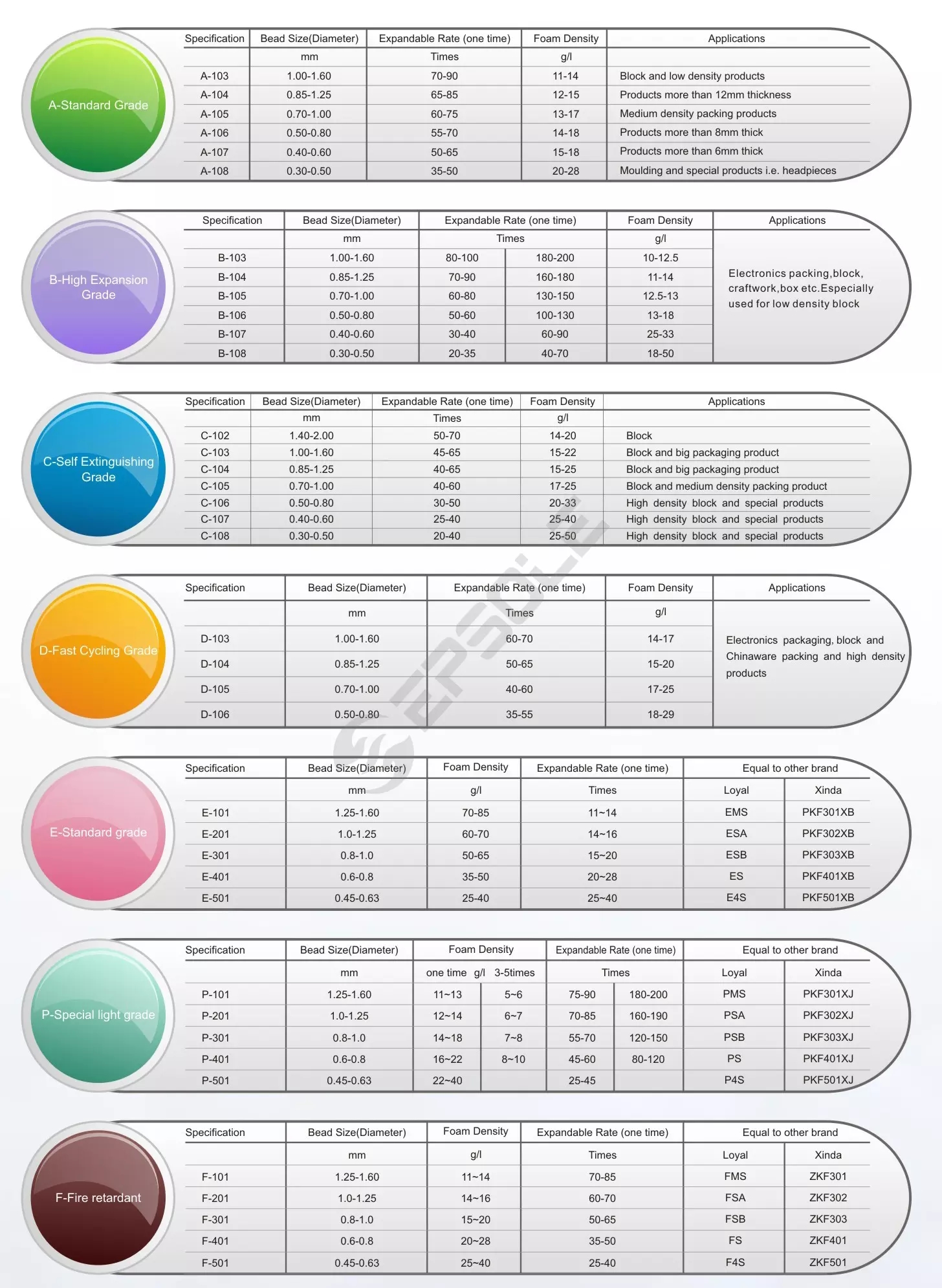 2021.06.09
2021.06.09
Global plastics network believes that EPS plastic is expandable polystyrene, commonly known as polystyrene and styrene copolymer, is a mixture of resin, physical foaming agent and other additives. The most common expandable polystyrene is transparent PS granules containing pentane as foaming agent. The main uses of EPS are disposable beverage cups, aseismic packaging and thermal insulation materials.
EPS plastic properties:
1. Light weight. Part of the space of EPS packaging products is replaced by gas, which contains 3-6 million independent closed bubbles per cubic decimeter volume. So it’s several to dozens of times larger than plastic.
2. It can absorb impact load. When the packing product of EPS is subjected to impact loading, the gas in the foam is dissipated and dissipated by stagnation and compression, and the foam body gradually terminates the impact load with smaller negative acceleration. Therefore, it has better shockproof effect.
3. Good heat insulation. The thermal conductivity is the weighted average of pure EPS thermal conductivity (108cal / M.H. ℃) and air thermal conductivity (about 90cal / M.H. ℃).
4. Good sound insulation. There are two ways to improve the sound insulation of EPS products. One is to absorb sound energy and reduce reflection and transmission; The second is to eliminate resonance and reduce noise.
5, anti-aging and corrosion resistance. In addition to long-term exposure to high-energy radiation, the product has no obvious aging phenomenon. It can withstand many chemical substances, such as dilute acid, dilute alkali, methanol, lime, asphalt, etc.
6. Antistatic performance. Due to the low conductivity of EPS products, it is easy to generate its own electrification phenomenon in friction, which will not affect the products of general users. Anti static EPS products should be used for high-precision electronic products, especially for large-scale integrated block structural components of modern electrical appliances.







 Tel:
Tel:


